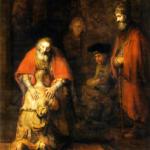There is an excellent article in the NY Times involving the current editor of Christianity Today, Russell Moore, the former head of the Ethics committee of the Southern Baptist Denomination, and Tish Harrison Warren, a writer for the NY Times. The whole discussion can be found here.
https://www.nytimes.com/2023/07/30/opinion/state-of-evangelical-america.html
Here is a taste of the discussion. See what you think. I basically agree with Moore.
Your book delves into Christian nationalism as a component of the evangelical movement. How would you define Christian nationalism? And how has it affected evangelicalism in the United States?
Christian nationalism is the use of Christian symbols or teachings in order to prop up a nation-state or an ethnic identity. It’s dangerous for the nation because it’s fundamentally anti-democratic. Christian nationalism takes a political claim and seeks to make it ultimate. It says: If a person disagrees with me, that person is disagreeing with God. No democratic nation can survive that, which is why the founders of this country built in all kinds of protections from it.
Christian nationalism is also dangerous for the witness of the church, because Christian nationalism is fundamentally, at its core, anti-evangelical. If what the Gospel means is for people to come before God, person by person, not nation by nation or village by village or tribe by tribe, then Christian nationalism is heretical.
Christian nationalism assumes outward conformity enforced by social or political power. It transforms the way that we see reality with the assumption that the really important things are political and cultural, as opposed to personal and spiritual and theological.
——
I would add a couple of other comments. There has been a fundamental white-washing of what the religious situation was involving our Founding Fathers. Very few of them could have qualified as Evangelical Christians of any stripe. Some of them were traditional Anglicans or Episcopalians, such as Washington. Some of them were straight up Deists, like Thomas Jefferson and John Adams (see the correspondence between them, and check out Jefferson’s edited edition of the teachings of Jesus, with miracles deleted), and some were like Samuel Adams, a genuine forerunner of modern Evangelicalism especially the Revival side of things, and also a man who liked and made beer. This would not go down too well with teetotalers.
If one carefully reads both the Constitution and the Bill of Rights, one discovers many things, particular the desire to avoid the European mistake of having a national or state church. The Founding Fathers did not want a marriage of church and state. But it is also true that there really isn’t a statement about ‘the separation of church and state’. Originally, that sort of language reflected the concern to protect the church from interference, much less a co-opting, of the church by the state. Eventually in our era it came to refer to protecting the federal government from religious partisanship. And the latter is where the issue of Christian nationalism comes in. In a democracy if you want people’s opinions to become more in line with the Gospel, then you have to convince or persuade them. Attempts to legislate Christianity into law does not work if it does not reflect the will of the majority of the people. It just doesn’t. Study what happened when conservative Christians got prohibition enshrined in law in the 20th century. It did not last long, nor did it work.
One last thing. While democracy is nowhere to be found in the Bible, there is a good deal said about freedom, including by implication freedom of religion. And yet Christianity was birthed where autocracy was everywhere and democracy had died a painful death in Greece centuries before. We should not make the mistake of assuming that somehow Christianity and a democratic form of government necessarily go together. Christianity has thrived under pagan and even Muslim empires but also sometimes in democracies. The worst for us today would be a dictatorship in a pluralistic culture which now has numerous religions. If Christians want the country to be more Christian, then they must persuade the millions who are not currently persuaded. Electing someone who doesn’t really embrace freedom of religion, but instead waves the flag of Christian nationalism and is actually opposed to a non-authoritarian approach to power such as ‘of the people, by the people, and for the people’ which is genuine populism, is a recipe for destroying democracy without aiding the cause of Christianity. Think about these things.













